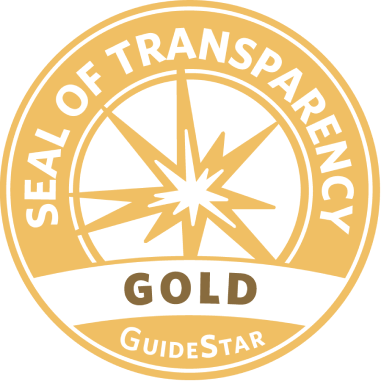There’s an invisible weight many young women carry—unspoken and often mistaken for strength. It’s the pressure to appear composed while unraveling inside, to succeed while silencing softness. We’re taught early to earn worth through achievement, to swallow pain quietly, and to serve others at the expense of ourselves. Over time, survival gets mistaken for wellness.
But there’s another path—one that balances strength with self-preservation. It’s rooted in science, psychology, and lived experience: self-compassion.
What Is Self-Compassion?
Self-compassion is the act of treating oneself with the same understanding, patience, and care we’d extend to a loved one in distress. It’s not indulgent. It’s not naïve. It’s a courageous reorientation of how we respond to pain.
There are three components of self-compassion:
Self-Kindness – Choosing to respond to our mistakes and moments of suffering with gentleness rather than harsh self-criticism.
Common Humanity – Recognizing that imperfection is not a personal failing but a universal part of being human.
Mindfulness – Approaching our emotional experiences with balance and clarity, neither ignoring nor catastrophizing them.
This triad forms a psychologically grounded framework—one that counteracts the damaging effects of perfectionism, shame, and isolation. But to understand why self-compassion is more than a wellness buzzword, we need to look beneath the surface—into the brain itself.
The Neuroscience Behind Self-Compassion
Self-compassion isn’t just a “feel-good” idea—it actually changes how our brain works.
When we’re hard on ourselves, our brain thinks we’re in danger. It sets off an alarm system in a part of the brain called the amygdala, which is in charge of fear. This makes our body release stress chemicals like cortisol and adrenaline. If we do this too often, it wears down our immune system, makes anxiety worse, and leads to burnout.
But when we’re kind to ourselves, our brain calms down. It switches on parts of the brain that help us feel safe and connected, like the insula and prefrontal cortex. These areas help us manage emotions and feel empathy. Self-compassion also helps our brain release feel-good chemicals like oxytocin and endorphins, which reduce stress and make us feel more relaxed.
So basically:
Being harsh with ourselves makes our brain think we’re in danger.
Being kind to ourselves makes our brain feel safe.
But here is the good news: the brain is not fixed. Through neuroplasticity—the brain’s ability to rewire itself—we can change how we relate to ourselves and others.
Why It Matters for Young Women
The internalization of performance, perfection, and self-neglect begins early, especially for girls and young women navigating systems that reward compliance over authenticity.
When your sense of worth becomes contingent on being competent, kind, beautiful, or composed, any deviation feels like failure. Self-compassion interrupts that cycle.
It dishonestly says: you are not the exception to the rule of human fallibility.
You are not unworthy of care because you’re struggling.
You do not need to earn rest.
In the long term, practicing self-compassion is correlated with lower levels of anxiety, depression, rumination, and fear of failure. It fosters emotional resilience, greater motivation, and a more stable sense of self-worth. And critically—it does not make us passive or complacent. In fact, studies show that people who practice self-compassion are more likely to take responsibility for their mistakes, improve their habits, and stay committed to goals.
The truth is: compassion doesn’t weaken discipline. It deepens it. But it changes the why. Instead of acting from fear of inadequacy, we act from alignment, care, and clarity.
What Self-Compassion Is Not
There are persistent myths about self-compassion—particularly in high-achieving cultures—that deserve debunking. It’s not laziness, self-pity, selfishness or a lack of accountability. In fact, it helps us reflect honestly, break cycles of reactivity, and take meaningful responsibility—without the poison of shame. In a culture where shame is a weapon, compassion becomes a quiet revolution.
How to Begin: Everyday Practices
Practicing self-compassion doesn’t require silence or seclusion. It begins with intention. Below are a few research-backed practices that require no special equipment—only your attention and honesty.
Self-Compassion Breaks: When you’re in emotional pain, pause. Acknowledge the moment: “This is hard.” Recognize the common humanity: “Suffering is part of being human.” Extend kindness: “May I be kind to myself in this moment.” This interrupts the reflexive loop of self-blame.
Affectionate Touch: Placing a hand over your heart, gently holding your face, or even clasping your hands together can trigger your body’s soothing system. Touch has been shown to increase oxytocin levels and reduce cortisol, even when self-administered.
Compassionate Letter Writing: Write a letter to yourself as if you were speaking to a friend. Reflect on a recent struggle with warmth, understanding, and validation. This practice, shown in clinical trials, can increase well-being and empathy towards ourselves.
Reframing Self-Talk: Pay attention to your inner monologue. Is it conditional? Try asking: “Would I speak to a child this way?” Then reframe your language in ways that are honest and kind.
Even small acts of compassion accumulate. Over time, they change the way we relate to ourselves, and by extension, to others.
Returning to Ourselves
As women, particularly those raised to over-function in silence, we are not strangers to strength. But we deserve to know that strength doesn’t require self-abandonment. That we can be both capable and compassionate. That we can lead, advocate, serve—and still be soft with ourselves.
In our current cultural climate, where burnout is normalized and self-worth is tethered to productivity, the act of practicing self-compassion is not weakness. It is wisdom. It is sustainable and necessary.
So this Mental Health Month, OMID hopes to offer this helpful reminder:
You don’t have to keep carrying it all alone.
You don’t have to measure your worth in how little you need.
You don’t have to earn self-compassion. You are entitled to it.
There is a quiet kind of power in being on your own side. A strength not born of grit alone, but of grace. A revolution that begins not with force, but with a whisper: I matter, too.
As we center healing and self-compassion this month, we’d love to share a book that’s transformed how so many approach their inner dialogue: Self-Compassion by Dr. Kristin Neff.
Dr. Neff’s work on being gentle with ourselves—especially through trauma and transition—deeply resonates with OMID’s mission of empowerment through empathy.
If you decide to purchase it through this link, a portion supports our programming for young women rebuilding their lives. Healing for you, hope for others.

